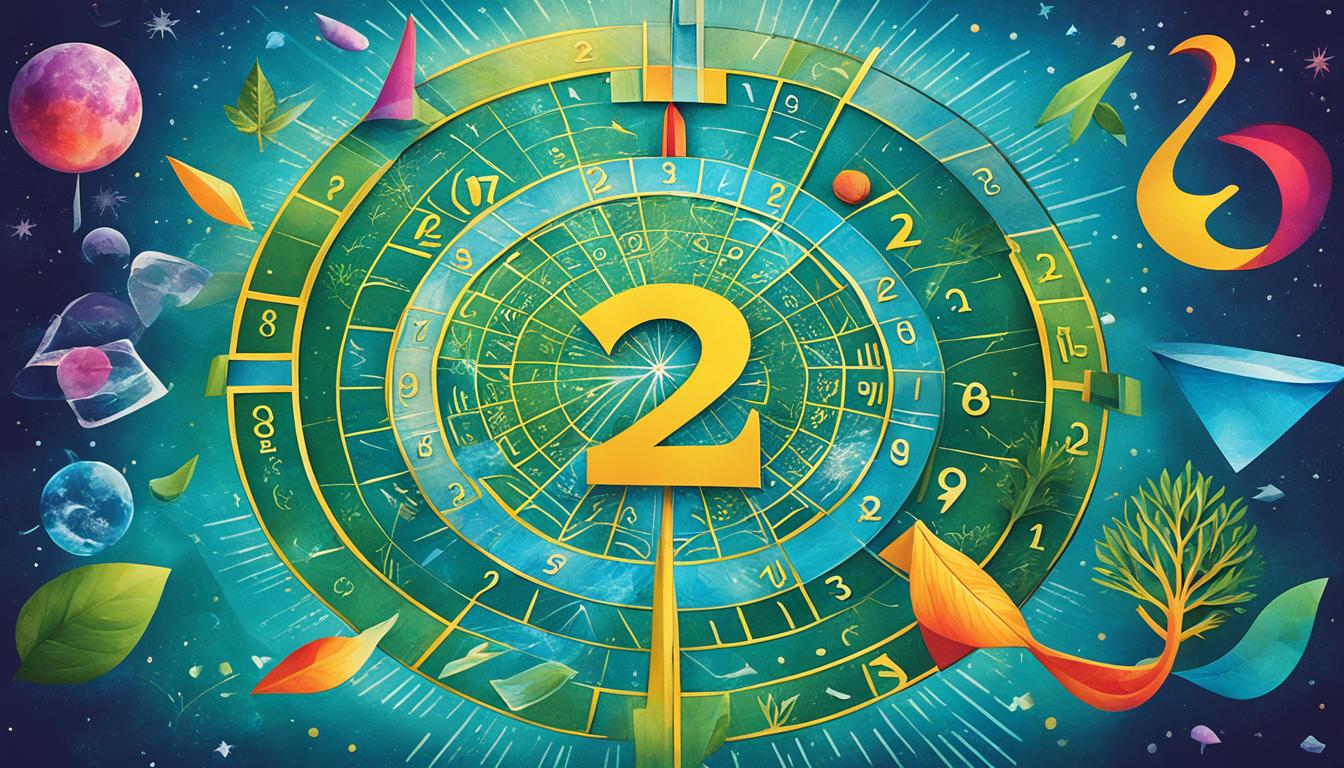Dreams have always fascinated and intrigued human beings. They offer a window into our subconscious mind, providing insights, messages, and even prophecies. But what happens when the dreams we once cherished and relied on suddenly disappear?
Many people find themselves questioning, “Why am I not dreaming anymore?” This profound shift can leave us feeling disconnected, confused, and searching for answers. In this article, we will explore the spiritual meaning behind the absence of dreams, understanding the science behind dreaming, practical reasons for their disappearance, and steps to reinstate dreaming patterns. We will also delve into spiritual perspectives, the connection between spiritual growth and higher consciousness, and the temporary phase of adjustment and introspection.
It is essential to approach this topic with an open mind, recognizing that dreams hold deeper significance beyond mere entertainment or subconscious processing. The absence of dreams is not necessarily a negative occurrence but can serve as a catalyst for personal growth and spiritual exploration.
Key Takeaways:
- The absence of dreams can have a spiritual meaning and significance.
- Understanding the scientific aspects of dreaming can provide insights into their absence.
- Practical reasons, such as sleep disturbances or medication, may contribute to the lack of dreams.
- Reinstating dreaming patterns requires addressing practical issues and embracing spiritual perspectives.
- The absence of dreams can be seen as an opportunity for spiritual growth and higher consciousness.
- It is important to navigate the journey with awareness and introspection.
Understanding the Science Behind Dreaming
Before delving into the spiritual aspect of dreamless sleep, it is essential to understand the science behind dreaming. Dreams have fascinated humans for centuries, and researchers have made significant strides in understanding the mechanisms and significance of this nighttime phenomenon.
Dreaming primarily occurs during the rapid eye movement (REM) stage of sleep, which usually happens about 90 minutes after falling asleep. During REM sleep, the brain becomes highly active, resembling the patterns seen in a waking state. This brain activity is accompanied by vivid and often bizarre dreams.
Neuroscientists believe that dreaming serves several important functions. One theory suggests that dreaming helps with memory consolidation and processing of emotional experiences. During REM sleep, the brain integrates information from the day, strengthening relevant memories and discarding irrelevant ones.
Furthermore, dreaming may play a role in problem-solving and creativity. Research has shown that individuals who experience more vivid dreams tend to be more inventive and creative in their waking life. Dreams can provide a unique space for the subconscious mind to make connections and generate new ideas.
However, it is worth noting that not everyone remembers their dreams. Some individuals may have a tendency to forget their dreams shortly after waking up, while others may experience dreamless sleep altogether. This lack of dream recall can be attributed to various factors.
Disturbed sleep patterns: Disruptions in the sleep cycle, such as frequent awakenings or irregular sleep schedules, can interfere with dream recall. When sleep is fragmented, the opportunity for entering the REM stage and experiencing vivid dreams diminishes.
Medication and substances: Certain medications, including sleep aids and antidepressants, can suppress REM sleep and subsequently impact dream recall. Additionally, substances such as alcohol and cannabis have been found to affect the sleep cycle, potentially reducing dream frequency and clarity.
Stress and anxiety: High levels of stress and anxiety can also interfere with dream recall. When the mind is preoccupied with worry or intense emotions, it may have difficulty accessing and remembering dreams.
Individual differences: Finally, it is important to recognize that dream recall varies among individuals. Some people naturally have better dream recall abilities, while others may struggle to remember their dreams even under normal circumstances.
Understanding the Science Behind Dreaming
| Factors Affecting Dream Recall | Examples |
|---|---|
| Disturbed sleep patterns | Frequent awakenings, irregular sleep schedules |
| Medication and substances | Sleep aids, antidepressants, alcohol, cannabis |
| Stress and anxiety | High levels of stress, intense emotions |
| Individual differences | Varying dream recall abilities |
“Dreaming permits each and every one of us to be quietly and safely insane every night of our lives.”
― William C. Dement
While the science behind dreaming provides valuable insights into the neurological processes involved, it is important to explore the spiritual significance of dreamless sleep. In the next section, we will delve into the potential spiritual reasons for the absence of dreams and the experiences individuals may encounter on this journey of self-discovery.

Practical Reasons for the Absence of Dreams
From a practical perspective, a lack of dreams can often be attributed to sleep disturbances or disruptions. Dreamless nights may be a result of various factors that affect the quality and depth of our sleep, ultimately impacting our ability to recall dreams. Understanding the practical reasons behind the absence of dreams can provide valuable insights into this phenomenon.
Sleep disorders such as insomnia, sleep apnea, or restless leg syndrome can significantly affect the quality of your sleep and may result in dreamless nights. These conditions disrupt the sleep cycle, leading to fragmented or unrefreshing sleep, reducing the likelihood of dreaming. It is important to address these issues with the help of healthcare professionals to promote better sleep and restore dreaming patterns.
Stress and anxiety can also play a significant role in inhibiting dreaming. When we are consumed by worry or preoccupied with life’s challenges, our minds remain active even during sleep. This heightened mental activity can interfere with the brain’s ability to enter the REM (Rapid Eye Movement) stage, where dreams typically occur. Finding healthy ways to manage stress, such as practicing relaxation techniques or engaging in regular exercise, can contribute to more restful sleep and enhance dream recall.
Another practical reason for the absence of dreams is the use of certain medications or substances. Some prescription drugs, such as certain antidepressants or sedatives, can suppress dream activity. Additionally, substances like alcohol or recreational drugs may interfere with the brain’s natural sleep cycles, inhibiting the occurrence of dreams. It is important to consult with a healthcare professional if you suspect that medication or substance use may be contributing to the lack of dreams.
In addition to these practical factors, external environmental conditions can also impact dreaming. Sleeping in unfamiliar or uncomfortable surroundings, exposure to excessive noise or light, or irregular sleep schedules can disrupt the natural rhythm and depth of sleep, reducing the likelihood of dreaming. Creating a soothing sleep environment, maintaining a consistent sleep schedule, and minimizing external disturbances can help promote more dream-rich sleep.
Practical Reasons for the Absence of Dreams: Summary
In summary, a lack of dreams can often be attributed to practical factors such as sleep disturbances, stress, medication or substance use, and external environmental conditions. Addressing these issues, whether through medical intervention, stress management techniques, or creating a conducive sleep environment, can help reinstate dream patterns and promote a more fulfilling sleep experience.

Spiritual Reasons for No Longer Having Dreams
In such cases, it is essential to address these underlying issues to resume regular dreaming patterns. Sometimes, the absence of dreams holds a deeper spiritual meaning. It is not uncommon for individuals to experience phases in their lives where dreams seem to vanish, leaving them questioning the significance of this change.
While there may be practical reasons behind the lack of dreams, it is crucial to explore the spiritual perspectives as well. Here are some key spiritual reasons that may contribute to the absence of dreaming:
- Spiritual Growth and Transformation: Dreams are often seen as a way of receiving messages from the spiritual realm. When individuals go through significant spiritual growth or transformation, their dream patterns may temporarily change. This shift can indicate a period of adjustment and introspection, where the focus shifts from the dream world to real-life experiences.
- Higher Consciousness: As individuals progress on their spiritual journey, they may reach higher levels of consciousness. In these heightened states, dreams may become less frequent or even nonexistent. This can indicate a shift towards a more direct connection with spiritual guidance, allowing individuals to receive insights and guidance in waking life rather than through dreams.
- Blockages and Disconnections: The absence of dreams could also be a sign of blockages or disconnections in the spiritual realm. This may occur when individuals are facing unresolved emotional issues, trauma, or spiritual conflicts. Addressing these issues through healing and self-reflection can help restore the flow of dreams and spiritual connection.
- Medication and Substance Use: It is important to consider the impact of medication or substance use on the absence of dreams. Certain medications, such as antidepressants or sleep aids, can suppress dream activity. Substance use, particularly substances that affect consciousness, may also interfere with dreaming. Consulting a healthcare professional can provide insight into the potential effects of medication or substance use on dreams.
Understanding the spiritual implications of not dreaming anymore requires self-reflection, exploration, and awareness. It is a personal journey that can lead to valuable insights and growth. By addressing practical issues, exploring the spiritual significance, and navigating the path with consciousness, individuals can unlock the spiritual meaning behind the absence of dreams and discover new dimensions of their spiritual journey.

In such cases, it is essential to address these underlying issues to resume regular dreaming patterns. Sometimes, the absence of dreams holds a deeper spiritual meaning. It is not uncommon for individuals to experience phases in their lives where dreams seem to vanish, leaving them questioning the significance of this change.
| Common Practical Reasons for the Absence of Dreams | Spiritual Perspectives on the Absence of Dreams |
|---|---|
| Stress and anxiety | Spiritual growth and transformation |
| Irregular sleep patterns | Higher consciousness |
| Medical conditions | Blockages and disconnections in the spiritual realm |
| Medication side effects | Considerations of medication and substance use |
“Dreams are often seen as a way of receiving messages from the spiritual realm.”
Exploring the Journey for Spiritual Meaning
Delving into the absence of dreams requires a deep exploration of one’s spiritual journey. It is an opportunity to seek guidance, develop self-awareness, and connect with the divine. By embracing the spiritual perspective, individuals can navigate the path with curiosity and openness, unlocking the profound spiritual meaning behind the absence of dreams.
Spiritual Perspectives on the Absence of Dreams
However, the absence of dreams can also hold spiritual significance. In many spiritual traditions, dreams are seen as a pathway for communication with higher realms and the subconscious mind. When dreams cease to occur, it can be seen as a sign of a shift in spiritual energy or a deeper transformation taking place within oneself.
According to spiritual beliefs, the absence of dreams may indicate a period of spiritual growth and higher consciousness. It is believed that during this time, the mind is being recalibrated and prepared for new spiritual insights and revelations. It is an opportunity for introspection and self-reflection, allowing individuals to delve into their inner thoughts and emotions without the distractions of dreams.

Some spiritual practitioners interpret the lack of dreams as a temporary phase of adjustment. It is a time when the subconscious mind is integrating past experiences, releasing old patterns, and making space for new spiritual insights to emerge. It is viewed as a necessary step in the spiritual journey, allowing individuals to process and heal on a deeper level.
Others believe that the absence of dreams can signify blockages or disconnections in the spiritual realm. It may indicate a need for spiritual cleansing or the clearing of negative energies that are hindering the flow of spiritual experiences. This can be viewed as an invitation to delve deeper into one’s spiritual practices, such as meditation, prayer, or energy healing, to restore the connection with the spiritual plane.
Sometimes, the absence of dreams may be influenced by external factors such as medication or substance use. Certain medications can suppress dream activity or alter the dream state, resulting in a decrease or absence of dreams. Similarly, substance use, particularly alcohol and drugs, can interfere with dream recall and disrupt the natural dreaming process. It is important to consider these factors when exploring the absence of dreams from a spiritual perspective.
Exploring the journey for spiritual meaning in the absence of dreams requires awareness and self-reflection. It is a time to examine one’s beliefs, values, and practices, and to seek guidance and support from spiritual mentors or communities. It can be an opportunity for personal growth, deepening spiritual connection, and gaining a deeper understanding of oneself and the spiritual realm.
Overall, the absence of dreams can be seen as a transformative phase in the spiritual journey. It invites individuals to embrace introspection, release old patterns, and connect with higher consciousness. By delving into the spiritual significance of not experiencing dreams, individuals can uncover profound insights and embark on a new path of spiritual growth.
Spiritual Growth and Higher Consciousness
One possible interpretation of not dreaming could be that the individual has achieved a higher state of consciousness or spiritual awakening. In a spiritual context, the loss of dreams can be viewed as a sign of spiritual growth and a deeper connection with the divine.
When we dream, our minds are often filled with thoughts, desires, and concerns of the physical world. Dreams can be influenced by our subconscious minds, external stimuli, and our daily experiences. However, in the absence of dreams, the mind is free from the constraints of the physical realm and can transcend to a higher level of consciousness.
It is believed that during deep meditative states or spiritual practices, individuals may experience a shift in awareness that goes beyond the realms of ordinary dreaming. This shift can lead to profound spiritual experiences, inner peace, and a heightened sense of connection with the universe.
While dreams can provide valuable insights and guidance, the absence of dreams does not necessarily indicate a lack of spiritual progress. Instead, it can signify a transition to a more direct and profound experience of spirituality.
“Dreams are the guiding words of the soul. Why should I henceforth not love my dreams and not make their riddling images into objects of my daily consideration?” – Carl Jung
Carl Jung, the renowned Swiss psychiatrist and psychoanalyst, emphasized the significance of dreams in understanding the deeper aspects of the self. However, he also recognized that there are states of consciousness beyond dreams that hold immense spiritual value.
During these states, individuals may experience a sense of unity with all things, a deep understanding of their purpose in life, and a heightened sense of intuition. These experiences can provide profound insights and guidance on one’s spiritual journey.
It is important to approach the absence of dreams with an open mind and embrace the potential for spiritual growth and awakening. Instead of viewing it as a loss, it can be seen as an invitation to explore deeper realms of consciousness and expand one’s spiritual horizons.
Awakening to the Present Moment
One possible interpretation of the absence of dreams is that it allows individuals to be fully present in the waking state. In a world filled with distractions and constant sensory input, the absence of dreams can be seen as an opportunity to cultivate mindfulness and focus on the present moment.
By letting go of the attachment to dreams and embracing the reality of each moment, individuals can develop a deeper appreciation for the beauty and wonder of everyday life. This can lead to a profound sense of gratitude, joy, and a heightened awareness of the interconnectedness of all beings.
As individuals navigate the spiritual journey, it is essential to remember that each path is unique and personal. The absence of dreams can serve as a catalyst for exploring new avenues of spiritual growth, deepening one’s connection with the divine, and embracing the present moment with open-hearted awareness.

Spiritual Perspectives on the Absence of Dreams
Another perspective suggests that the absence of dreams may be a temporary phase during which the individual’s subconscious mind is adjusting or processing information at a deeper level. This phase of adjustment and introspection can be seen as a spiritual journey, where the individual is guided to explore their inner self and gain new insights.
During this period, dreams may become less frequent or even non-existent as the focus shifts from the external world to the internal realm. It is believed that the subconscious mind is actively working through unresolved emotions, past traumas, and spiritual growth.
In many spiritual traditions, dreams are considered a gateway to higher consciousness and a means of receiving messages from the divine. However, the absence of dreams does not necessarily indicate a disconnection from the spiritual realm. It can be seen as an invitation to explore new avenues of spiritual growth and understanding beyond the realm of dreams.
“The absence of dreams is not a sign of spiritual stagnation, but an opportunity for deeper introspection.”
In some spiritual practices, the absence of dreams is seen as a symbol of spiritual purification. It is believed that during this period, blockages and disconnections within the spiritual realm are being addressed and resolved. This purification process allows for the expansion of consciousness and the cultivation of a deeper spiritual connection.
It is important to note that the absence of dreams can also be influenced by practical factors such as stress, medication, or substance use. These factors can disrupt the natural flow of dreams and hinder spiritual experiences. It is essential to consider these aspects and seek guidance if necessary.
The journey for spiritual meaning does not solely rely on dreams. It encompasses a holistic approach that involves meditation, self-reflection, and the cultivation of mindfulness in everyday life. By embracing these practices, individuals can navigate their spiritual journey with awareness, even in the absence of dreams.

In conclusion, the absence of dreams can hold spiritual significance and should be approached with curiosity and mindfulness. It is a time for introspection, spiritual growth, and addressing blockages within the spiritual realm. By embracing this phase and exploring alternative avenues for spiritual meaning, individuals can deepen their connection to the divine and unlock new insights on their spiritual journey.
Blockages and Disconnections in the Spiritual Realm
The lack of dreams could also signify a disconnection from the spiritual realm or a blockage in the individual’s energy field. In spiritual traditions, dreams are often regarded as a form of communication between the physical and spiritual realms. When dreams become scarce or non-existent, it can be an indication that there is a barrier preventing this communication.
According to various sources, including The Mind Unleashed, dreams are considered a gateway to the subconscious mind and the higher realms of consciousness. They provide insights, guidance, and messages from the spiritual realm. The absence of dreams may suggest that an individual is experiencing a disruption in their spiritual connection.

A common belief is that blockages or disconnections in the spiritual realm can occur due to unresolved emotional issues, traumas, or negative energies. These blockages can prevent the flow of spiritual energy and impede the reception of messages in dreams.
| Signs of Blockages and Disconnections |
|---|
| 1. Persistent feeling of spiritual emptiness |
| 2. Lack of clarity or direction in life |
| 3. Difficulty connecting with intuition or inner guidance |
| 4. Inability to feel a sense of purpose |
Blockages can manifest in different ways for different individuals, but they often create a sense of stagnation and disconnect from one’s spiritual path. It is essential to address these blockages and work towards clearing any energetic obstacles that may be hindering the flow of spiritual energy.
Spiritual Practices for Clearing Blockages
There are various spiritual practices that can assist in clearing blockages and restoring the connection with the spiritual realm. Some of these practices include:
- Meditation: Regular meditation can help to quiet the mind, release emotional blockages, and create space for spiritual insights to emerge.
- Energy Healing: Techniques such as Reiki, acupuncture, or crystal healing can assist in rebalancing the energetic system and removing blockages.
- Journaling: Keeping a dream journal or writing down thoughts and emotions can help uncover underlying issues and provide clarity on any blockages.
- Prayer and Affirmations: Engaging in prayer or repeating affirmations can help shift energy and open the channels of communication with the spiritual realm.
“Clearing blockages requires self-reflection, self-acceptance, and a willingness to confront and heal past wounds,” says spiritual teacher, Deepak Chopra.
By actively engaging in these spiritual practices and addressing any emotional or energetic blockages, individuals may begin to restore their connection with the spiritual realm and regain access to the transformative and enlightening experiences that dreams can offer.
It is important to note that if the absence of dreams persists or is accompanied by other concerning symptoms, it may be beneficial to seek guidance from a spiritual counselor or healthcare professional who specializes in spiritual well-being.
Considerations of Medication and Substance Use
It is worth noting that the absence of dreams can also be attributed to medication or substance use. Certain medications, such as antidepressants, antipsychotics, and some sleep aids, may impact the dream cycle and result in a decrease in dream recall or vividness. Similarly, the use of certain substances, including alcohol, marijuana, and hallucinogens, can alter brain chemistry and disrupt normal dreaming patterns.
While the relationship between medication, substance use, and dreaming is complex and varies from person to person, it is important to consider these factors when exploring the spiritual implications of not dreaming anymore. Medications and substances that affect the central nervous system can interfere with the brain’s ability to enter the REM (rapid eye movement) sleep stage, which is when dreams predominantly occur.

It is crucial to consult with a healthcare professional if you suspect that medication or substance use may be impacting your ability to dream. They can provide guidance on potential alternatives or adjusting dosages if appropriate. If medication or substance use is a significant factor in the absence of dreams, exploring alternative treatment options or seeking support from a holistic practitioner may be beneficial.
| Medications | Substances |
|---|---|
| Antidepressants | Alcohol |
| Antipsychotics | Marijuana |
| Sleep aids | Hallucinogens |
“Medications and substances that affect the central nervous system can interfere with the brain’s ability to enter the REM (rapid eye movement) sleep stage, which is when dreams predominantly occur.”
While the absence of dreams can be frustrating or concerning, it is essential to approach the situation with understanding and compassion. By considering all possible factors, including medication or substance use, individuals can gain deeper insights into the spiritual implications of not dreaming anymore and explore approaches to support their overall well-being.
Spiritual Significance of Not Experiencing Dreams
In conclusion, the absence of dreams can be attributed to various factors, both practical and spiritual. While we have explored the scientific explanations and practical reasons behind the lack of dreams, it is important to also consider the spiritual perspectives on this phenomenon. In the realm of spirituality, the absence of dreams holds deep significance and offers valuable insights into our spiritual growth and higher consciousness.

From a spiritual standpoint, not experiencing dreams can be seen as a temporary phase of adjustment and introspection. It is believed that during these dreamless nights, our subconscious mind is engaged in a process of self-reflection and integration of spiritual experiences. This period of introspection allows us to gain deeper understanding of ourselves and our spiritual path.
Additionally, the absence of dreams can be seen as a sign of blockages and disconnections in the spiritual realm. It may indicate that there are unresolved emotions, past traumas, or energetic imbalances that are hindering the flow of spiritual energy. This lack of dreams serves as a wake-up call to address these issues and embark on a journey of healing and spiritual growth.
Exploring the Journey for Spiritual Meaning
When we are no longer experiencing dreams, it is an invitation to explore the deeper spiritual meaning behind this phenomenon. It encourages us to delve into our subconscious mind, uncover hidden beliefs and patterns, and gain a clearer understanding of our spiritual purpose.
During this exploration, it is important to approach the journey with awareness and mindfulness. Maintaining a practice of meditation, journaling, and self-reflection can help us connect with our inner selves, clear energetic blockages, and reestablish a vibrant connection with the spiritual realm.
As we navigate through this journey, it is essential to seek support from spiritual teachers, mentors, or guides who can provide guidance and insights. They can assist in interpreting the spiritual symbolism behind the absence of dreams and offer techniques or practices to reconnect with our dream state and spiritual experiences.
Remember, the absence of dreams does not signify a permanent disconnection from the spiritual realm. It is merely an opportunity for us to deepen our spiritual understanding, heal emotional wounds, and elevate our consciousness.
“The absence of dreams is not a void, but a canvas for spiritual growth and transformation.”
In this process, it is crucial to remain patient and compassionate with ourselves. Each individual’s spiritual journey is unique, and it takes time to unravel the deeper layers of our being. Through persistent self-exploration and a commitment to spiritual practices, we can reignite the flame of our dreams and embark on a more profound spiritual journey.
In the next section, we will further explore the practical considerations of medication and substance use in relation to the absence of dreams and their spiritual implications.
11. Navigating the Spiritual Journey with Awareness
By exploring these possibilities and taking appropriate steps to address any underlying issues, one can potentially unlock the spiritual meaning behind the cessation of dreaming and navigate their spiritual journey with greater awareness and understanding.
Understanding the spiritual implications of not dreaming anymore can be a perplexing experience. It is a topic that requires careful introspection and a willingness to delve deeper into the realms of spirituality. Here are some considerations to help navigate this journey:
1. Reflect on Mindfulness and Meditation Practices
Practicing mindfulness and meditation can help create a deeper connection with the self and the spiritual realm. Engaging in these practices regularly can enhance self-awareness and open doors to spiritual insights. By being present in the moment and cultivating a state of inner peace, one may find a clearer pathway to understanding the significance of not experiencing dreams.
2. Seek Guidance from Spiritual Mentors or Teachers
Reaching out to experienced spiritual mentors or teachers can provide valuable guidance and support on the spiritual path. They can offer insights, techniques, and perspectives to help navigate the absence of dreams from a spiritual standpoint. These mentors may share their own experiences and offer tools for self-reflection and growth.
3. Engage in Journaling and Self-Reflection
Keeping a journal and engaging in self-reflection exercises can be beneficial in unraveling the spiritual implications of not dreaming anymore. By writing down thoughts, emotions, and experiences, one can gain clarity and explore deeper layers of their spiritual journey. Self-reflection fosters self-awareness and aids in identifying blockages or underlying issues.
4. Connect with Spiritual Communities
Joining spiritual communities or groups can provide a supportive environment to share experiences and gain insights from like-minded individuals. These communities often hold gatherings, workshops, or retreats focused on spiritual growth and exploration. Engaging with others who may have similar experiences can offer different perspectives and a sense of belonging.
Remember, the spiritual journey is unique for each individual, and the absence of dreams can be a temporary phase or hold specific significance in one’s personal growth.
By engaging in these practices and seeking guidance, one can navigate the spiritual journey with greater awareness and understanding. Remember to approach the absence of dreams with an open mind and a willingness to explore the depths of your own spirituality.

Conclusion
By exploring the spiritual implications of not dreaming anymore, individuals can unlock hidden meanings, embrace personal growth, and deepen their connection with the spiritual realm. It is a journey that requires patience, self-reflection, and a commitment to spiritual exploration. Trust in the process, and with time, the spiritual significance behind the cessation of dreaming may become clearer.
Conclusion
In conclusion, the absence of dreams can offer a glimpse into the spiritual realm and provide valuable insights into one’s spiritual journey. While the lack of dreaming may be disconcerting, it is important to explore the spiritual significance behind this experience.
Throughout history, dreams have been regarded as a window into the subconscious mind and a means of communication from higher realms. Many spiritual traditions believe that dreams can offer guidance, serve as messages from the divine, and hold important symbolism.
One possible explanation for the absence of dreams could be a temporary phase of adjustment and introspection. Life events, emotional changes, or spiritual growth can contribute to a shift in dreaming patterns. This period of introspection may be necessary for personal growth and to recalibrate the spiritual connection.
Blockages and disconnections in the spiritual realm may also play a role in the lack of dreaming. It is believed that unresolved emotions, traumas, or negative energies can obstruct the flow of spiritual communication, including dreams. Addressing these blockages through practices such as meditation, energy healing, or therapy may help restore the connection and reignite the dreaming experience.
Practical reasons, such as medication or substance use, should also be considered. Certain medications, particularly those that affect brain chemistry, can alter dreaming patterns. Similarly, substances like alcohol or drugs can interfere with the dream state. Consulting with a healthcare professional or exploring alternative treatments may be beneficial in these cases.
Throughout this journey, it is important to navigate with awareness and cultivate a deeper understanding of the spiritual implications of not dreaming. This can involve exploring different spiritual perspectives, seeking guidance from spiritual mentors or practitioners, and engaging in introspective practices like journaling or dream analysis.
Ultimately, the absence of dreams can serve as an opportunity for spiritual growth and higher consciousness. It may prompt individuals to question their beliefs, seek a deeper connection with the spiritual realm, and embark on a journey of self-discovery.
In conclusion, the absence of dreams carries a profound spiritual meaning. It can be a time of reflection, healing, and exploration of the spiritual self. By embracing this period and delving into its significance, individuals can uncover valuable insights and embark on a transformative journey of spiritual understanding.
FAQ
Q: Why am I not dreaming anymore?
A: There can be various reasons for the absence of dreams, both practical and spiritual.
Q: Is there a scientific explanation for the lack of dreams?
A: While dreams are still not fully understood by science, there are theories that suggest certain factors can contribute to the lack of dreams.
Q: Are there practical reasons for not having dreams?
A: Yes, factors such as stress, sleep disorders, and medication can affect dream patterns.
Q: How can I reinstate my dreaming patterns?
A: Addressing practical issues like improving sleep hygiene and reducing stress can help reinstate dreaming patterns.
Q: What is the spiritual perspective on the absence of dreams?
A: From a spiritual standpoint, the absence of dreams may have deeper meanings and interpretations.
Q: Can the absence of dreams be related to spiritual growth?
A: Yes, some believe that the loss of dreams can be a part of the spiritual growth and higher consciousness journey.
Q: Could the absence of dreams be a temporary phase?
A: Yes, entering a phase of adjustment and introspection can sometimes lead to a temporary absence of dreams.
Q: Can blockages in the spiritual realm lead to no dreams?
A: Some spiritual beliefs suggest that blockages and disconnections in the spiritual realm can impact dream experiences.
Q: Do medications and substance use affect dreaming?
A: Yes, certain medications and substances can alter the dream state or cause the absence of dreams.
Q: How can I explore the spiritual meaning behind not experiencing dreams?
A: Exploring your spiritual journey and seeking guidance or insights can help uncover the significance of not dreaming.
Q: How can I navigate the spiritual journey without dreams?
A: With awareness and seeking spiritual knowledge, you can navigate the spiritual journey even without dreams.
Q: What is the conclusion about the spiritual meaning behind the absence of dreams?
A: The absence of dreams can carry deeper spiritual meanings and offer opportunities for self-discovery and growth.



